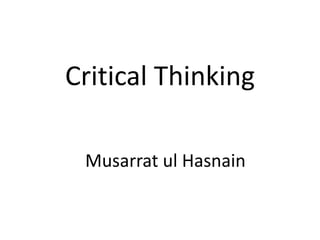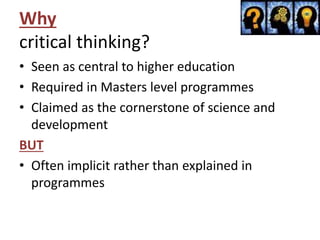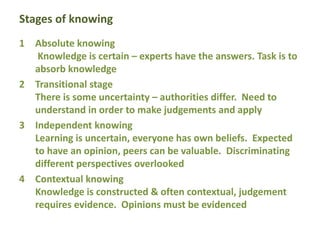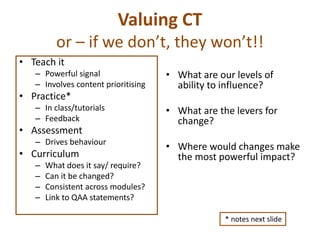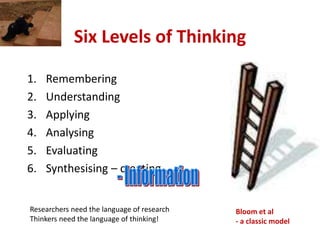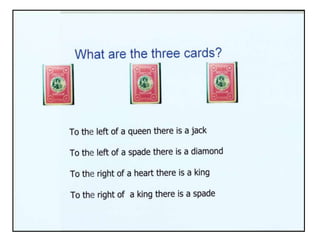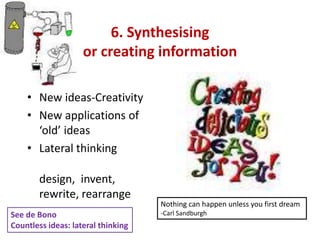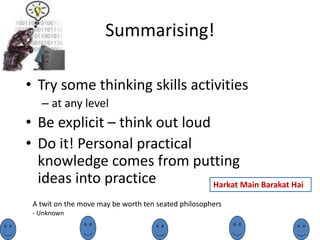1. Critical thinking is seen as central to higher education but is often implicit rather than explicitly taught. 2. Critical thinking develops in stages from absolute knowing to contextual knowing. Students may be at different stages for different contexts. 3. Fostering critical thinking requires teaching it explicitly, providing practice and feedback, and assessing it through the curriculum. Bloom's taxonomy provides a framework for classifying thinking skills into remembering, understanding, applying, analyzing, evaluating, and creating.
